Les Deux Pigeons Paix et Liberté 1952
Regular price €750,00The 1952 propaganda poster "Les Deux Pigeons", issued by the French anti-communist organization Paix et Liberté, captures a pivotal moment of Cold War tension in France with wit and satire. Using a famous line from Jean de La Fontaine's fable "Les Deux Pigeons", the poster overlays humor with a biting critique of communist figures and the political climate of the time.
On May 28, 1952, during a politically charged period in the Cold War, Jacques Duclos, a prominent figure of the French Communist Party (PCF), was arrested by police after participating in a demonstration organized by the Mouvement de la Paix against the visit of U.S. General Matthew Ridgway to Paris. In the car with Duclos, his wife, and his bodyguard, the police discovered a pistol, a radio, and a basket containing two pigeons. These pigeons became central to an absurd episode that quickly drew public attention.
Suspecting the pigeons were part of an espionage operation, the police theorized they might be Soviet carrier pigeons used to deliver messages. Duclos, however, countered that the birds were already dead, intended merely as dinner. In a farcical twist, the pigeons were autopsied to check for hidden microfilms or messages, turning the incident into a national joke.
The Paix et Liberté poster brilliantly lampoons this bizarre incident. It depicts two pigeons—one red, symbolizing communism, and one white, evoking peace. The red pigeon is trapped inside a cage, glaring angrily at the free white bird perched outside, holding an olive branch. The choice of colors and their symbolism are unmistakable: red aligns with the Soviet Union and the PCF, while white signifies the ideals of freedom and democracy.
Above the illustration is La Fontaine's fable line:
"Mon frère a-t-il tout ce qu’il veut? Bon souper, bon gîte, et le reste?"
("Does my brother have everything he wants? A good supper, good lodging, and the rest?")
This clever quotation mocks Duclos and the Communist Party, suggesting their hypocrisy in claiming to fight for the people while indulging in personal comforts. The imagery plays on the absurdity of the pigeon-autopsy episode, turning it into a potent anti-communist critique.
Paix et Liberté, founded in 1950, was a French propaganda group that opposed communist influence during the Cold War. The organization produced posters, leaflets, and caricatures designed to ridicule and discredit the PCF and its alignment with the Soviet Union. "Les Deux Pigeons" exemplifies their sharp use of humor and allegory to sway public opinion against communist figures like Duclos.
By drawing on a fable well-known to the French public, the poster effectively communicated its message to a broad audience. The reference to La Fontaine lent it a cultural resonance, while the caricature-style imagery ensured its accessibility and memorability.
The incident surrounding Duclos's arrest and the pigeons became a symbol of Cold War paranoia and the absurd lengths to which governments went to uncover espionage. The poster itself remains a fascinating artifact of the era, showcasing how propaganda was used to blend humor with serious political critique. It encapsulates the tensions of 1952 France, where anti-communist sentiment and fear of Soviet influence dominated the public discourse.
Today, "Les Deux Pigeons" is valued not only as a piece of Cold War history but also as a testament to the power of visual satire in political communication. Its clever juxtaposition of La Fontaine’s moralistic fable with a real-life political farce immortalizes a unique moment in 20th-century French politics.
Original poster
Propaganda - Caricature - Politics
My brother does everything he wants: good supper, good cottage, and the rest? La Fontaine - On May 28, 1952, in the midst of the Cold War, Jacques Duclos leader of the clandestine PCF during the war and interim secretary general of the party, returns home after the demonstration organized under the aegis of the Peace Movement against the coming of American general Ridgway in Paris.
The car where he was and his wife and bodyguard was arrested by the police.
In the car, a pistol, a radio and two pigeons were found in a basket.
The police, fine bloodhounds, supposed that the traveler pigeons were used to transport messages to the Soviets.
Jacques Duclos showed the police that the pigeons had died and, therefore, could not transport messages. The pigeons were intended to be eaten at dinner.
He was still arrested. The next day, the pigeons were autopsied to try to find microfilms intended for the Soviets.
Jacques Duclos was released after a month, after a campaign of the Communist Party.
Good condition, light traces of folds









